Science News

Scientists use extended, 22-year solar cycle to make the forecast. »

Places that don't have many species provide opportunity for rapid diversification. »

At what depth beneath the seabed does it become so hot that microbial life is no longer possible? »

The vast Himalayan region acts as an ‘aerosol factory’ contributing significantly to tropospheric aerosols that affect the balance between sunlight absorbed by the Earth and energy radiated back — the basis for the greenhouse effect that causes global warming, says a new study. »

Injecting aerosols into the upper atmosphere to dim the sun could cut the risk of drought by about 90 per cent, a study has found. »

Astronomers using NASA's Hubble Space Telescope watched a mysterious dark vortex on Neptune abruptly steer away from a likely death on the giant blue planet. »

The emergence of COVID-19 and other diseases of animal origin such as Ebola, SARS and HIV indicates that disturbing forests can trigger pandemics, say the authors of a new study, highlighting megatrends shaping the future of forests. »

Apathy could predict the onset of some forms of dementia many years before symptoms start, offering a ‘window of opportunity’ to treat the disease at an early stage. »

Climate variations at the poles can affect trade winds. »

A new superhighway network running through the Solar System has been discovered by astronomers, and it could speed up space travel in the future. »

Thousands of years ago, people in South America began domesticating Solanum pimpinellifolium, a weedy plant with small, intensely flavored fruit. Over time, the plant evolved into S. lycopersicum -- the modern cultivated tomato. »
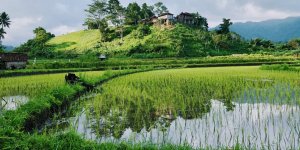
Researchers have developed a living plant-based sensor that can in real-time detect and monitor levels of arsenic, a highly toxic heavy metal, in the soil. »
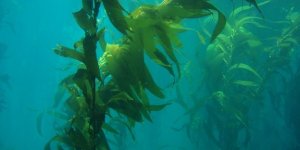
Analysis of California's Monterey Bay evaluates kelp's potential to reduce ocean acidification. »
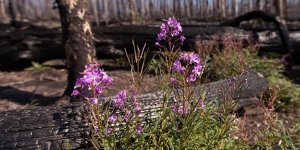
Study in the Rockies explores the role of fire in plants and their pollinators. »

On Dec. 6 local time, Japanese spacecraft Hayabusa2 dropped a capsule to the ground of the Australian Outback from about 120 miles above Earth’s surface. »

Scientists have tracked the very early stages of human foetal gut development in incredible detail, and found specific cell functions that appear to be reactivated in the gut of children with Crohn’s Disease. »

Researchers find mercury in fish and crustaceans collected at the bottom of the Pacific Ocean. »

Eruption triggered by rapid change after a decade-long buildup of pressure. »

New research describes a fossil family that illuminates the origin of perissodactyls -- the group of mammals that includes horses, rhinos and tapirs. »

Fast-moving gas flowing away from young star’s asteroid belt may be caused by icy comet vaporisation
A unique stage of planetary system evolution has been imaged by astronomers, showing fast-moving carbon monoxide gas flowing away from a star system over 400 light years away, a discovery that provides an opportunity to study how our own solar system developed. »

Fish accumulate mercury in their bodies and when they die the carcasses carry the toxic metal to the depths of the oceans, says a new study. »

The apple's domestication history has led to untapped sources of genes. »

For more than 10,000 years, the people who lived on the arid landscape of modern-day western New Mexico were renowned for their complex societies (...) »

A new study provides the most comprehensive picture yet of how human noise and light pollution affect birds throughout North America. »

The spores of some fungi can linger in the environment for months or years just waiting for something to spread them elsewhere, like a gust of wind, falling rain or a passing insect or animal. »

Studies support the role of cocoa flavanols — substances found in chocolate, as well as fruits and vegetables — in boosting memory and cognition. »

Researchers have developed environmentally friendly materials that could harvest enough energy from indoor light to power wireless smart devices. »

Conservation efforts on the edges of the Amazon forest, especially in light of recent deforestation by human disturbance, could help the region weather climate change, researchers say. »

For animals in the Arctic, life is a balancing act. Seasonal cues, such as warmer spring temperatures or cooler temperatures in the fall, tell animals when to migrate (...) »

Pollution by artificial light in coastal regions disrupts coral reproduction which depends on natural light sources to control their biological, physiological and behavioural activities. »

Fossils of bizarre, armored amphibians known as albanerpetontids provide the oldest evidence of a slingshot-style tongue, a study shows. »

'Theragrippers’ are inspired by a parasitic worm that clamps onto its host's intestines. »

Inaccessible for now, unique site may hold secrets of the past. »

Neutron star merger results in magnetar with brightest kilonova ever observed. »

Drinking hot beverages from paper cups poses health risks, a study has found. »

Mammal loss is accelerating across Latin America, threatening the delicate ecosystem balance that ultimately provides communities with food, shelter and livelihoods, new research warns. »

Researchers at the National Eye Institute (NEI) have decoded brain maps of human color perception. »

Research looked at nitrogen runoff from farmland in the Mississippi River basin. »

Researchers at Duke University and the University of California, Los Angeles have developed a biomaterial that significantly reduces scar formation after wounding, leading to more effective skin healing. »

Scientists using an instrument aboard NASA’s Mars Atmosphere and Volatile EvolutioN spacecraft have discovered that water vapor near the surface of the Red Planet is lofted higher into the atmosphere than anyone expected was possible. »

No social distancing in the Cretaceous: New study finds earliest evidence for mammal social behavior
Mammal social behavior goes back to the Age of Dinosaurs. »

Scientists have theorized on the origin of the water plumes possibly erupting from Jupiter's moon Europa. Recent research adds a new potential source to the mix. »

Birds synchronize their movements with seasonal changes in vegetation. »

New research shows that bacteria found on Earth can survive for years in space, as well as adopting new protective cell changes to regenerate themselves. »

The tropical storm season in the Atlantic Ocean is already well into the Greek alphabet for naming. »

As part of the ABOVE project using drones with miniaturised gas-sampling equipment, researchers were able to measure emissions of Manam and Rabaul volcanoes in Papua New Guinea. »

Integrating machine-learning technology with high-resolution imaging helps identify plant species. »
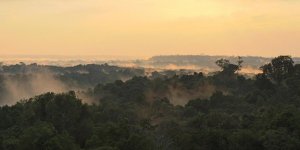
Researchers notice that some previously observed birds have become difficult to find. »
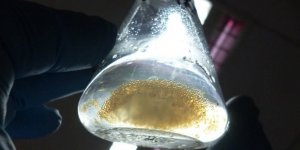
Researchers have developed a new and cheaper method of recycling used cooking oil and agricultural waste into biodiesel, and efficiently convert food scraps, micro-plastics and old tyres into valuable molecules used in medicines, fertilisers and biodegradable packaging. »
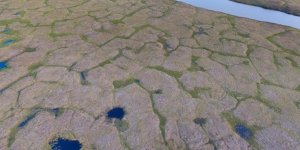
If you flew from the sea toward the land along the north slope of Alaska, you would cross from the water, over a narrow beach, and then to the tundra. »